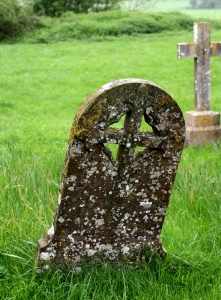
Summary: The collection of opinions from notable figures and sources that analysed the CAFC decision regarding a software patent in the US
Excessive optimism in NZ will do not good for the cause of software patents elimination. Software patents have been weakened in NZ, but they are not dead. The same is true for EU. Loopholes remain, and they remain by design.
A couple of days ago we mentioned the CAFC (US) ruling/s, noting that it helps legitimise the
status quo because mixed messages are sent,
offering no decent clarity. It was a missed opportunity. CAFC was not only lobbied by multinational corporations but also front groups like the
Business Software Alliance (BSA), which is funded by Microsoft for lobbying (for software patents of course). Here is the original
ruling/s [PDF] (text version
here). Grant Gross
wrote in
IDG that the ruling/s could be the end of software patents. It could, but won't. "The case generated briefs from Google, Facebook, Newegg and software trade group BSA, with some tech companies arguing the Alice patents should be invalid," he writes. And based on this report, perhaps the headline in particular, Nicolas Charbonnier
wrote: "Most Apple and Microsoft patents are hereby invalidated and worthless. Have a nice day."
The article from
Groklaw was more in-depth than most and it
transcribed /extracted the content of the PDF, making it more accessible and searchable. Pamela Jones wrote: "I remember the first time we wrote on Groklaw that software and patents need to get a divorce. Remember? So long ago, and how everybody laughed at us. I remember that too. I am thinking about Apple and Microsoft and all the software patent bullies. Well, let's not get ahead of ourselves."
Restrained optimism is better than excessive optimism, but let's survey some other optimists. Jones wrote by citation/blockquote, attributing Moore: “Let’s be clear: if all of these claims, including the system claims, are not patent-eligible, this case is the death of hundreds of thousands of patents, including all business method, financial system, and software patents as well as many computer implemented and telecommunications patents" (that is why it's such a big case).
Brian J. Love, a Law Professor at Santa Clara University,
said: "Ultimate analysis of CLS Bank: Back where we started, in that panel draw still determines who wins 101 appeals in software cases."
Poul-Henning Kamp, "Author of a lot of FreeBSD, most of Varnish and tons of other Open Source Software" (to use his own description of himself), said it "Looks a lot like the end of pure software patents to me" (
source).
The Oregonian correctly pointed out that the court was split on the issue. To quote: "The nation's top patent court issued a deeply divided opinion Friday on how to determine whether software is eligible for legal protection, reflecting the broader debate that has split the computer industry.
"The U.S. Court of Appeals for the Federal Circuit in Washington, which handles all patent appeals, issued a 135-page decision by 10 circuit judges that included five viewpoints and "additional reflections" from Chief Judge Randall Rader."
AOL said that the "
Federal Circuit Rules Software Invention Unpatentable" and this is inaccurate if applied to the whole, in generality. This gives false expectation that something will happen despite there being no major change.
The bottom line is, as the EFF points out, patentability of software needs to be addressed by the
SCOTUS again. The decision there needs to be less than a two-way tie this time around.
⬆

